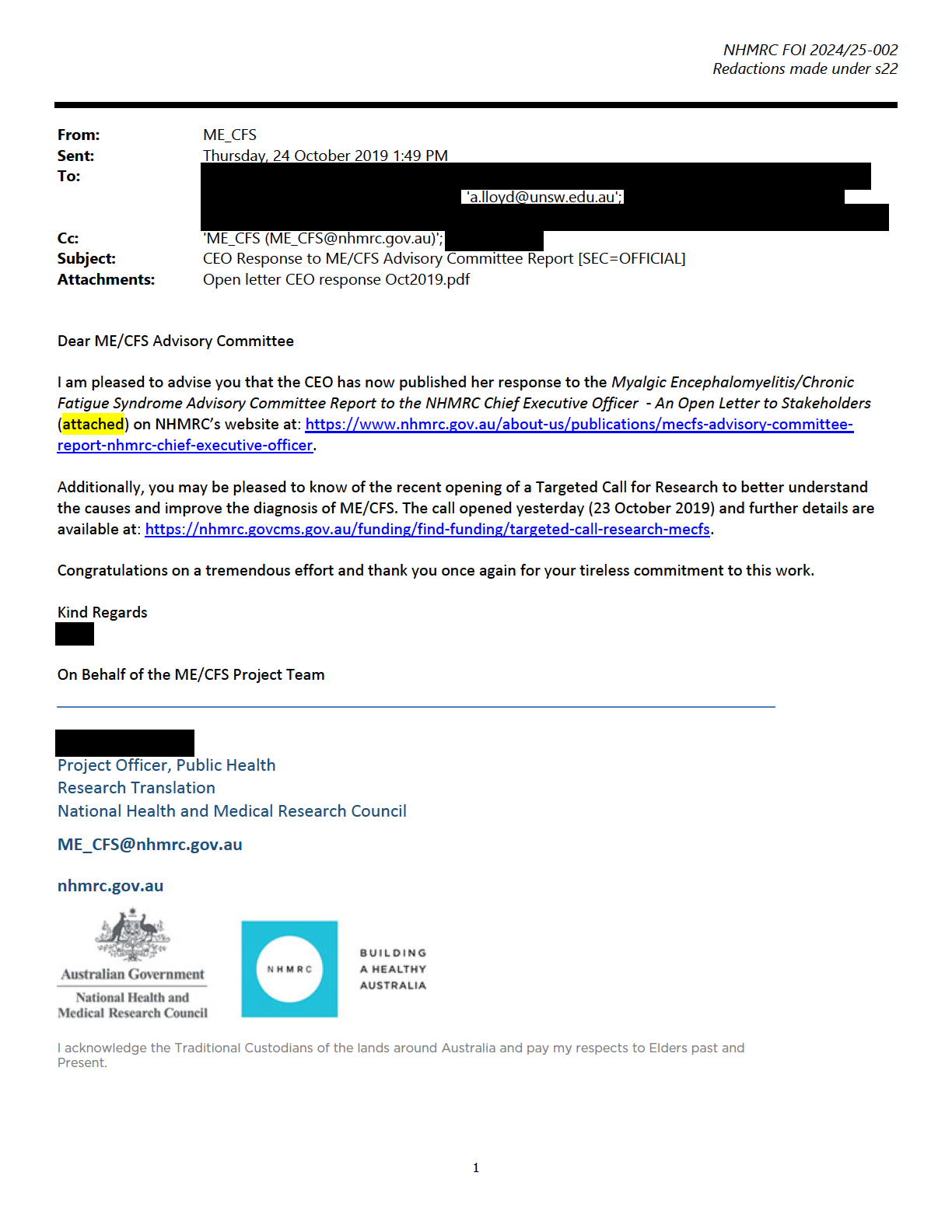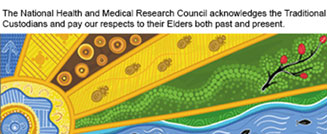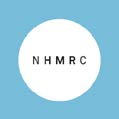

2




Dear Stakeholders,
I write to you in response
to
the
Myalgic Encephalomyelitis/Chronic Fatigue Syndrome (ME/CFS)
Advisory
Committee’s Report to the NHMRC Chief Executive Officer (the report).
In April 2019, I was pleased to receive the report with the committee’s recommendations about research and
clinical guidance for ME/CFS in Australia. I would like to thank the committee for its work on this important topic
and respond to each of the report’s recommendations.
Taking into consideration the report’s
Strategic focus one: Research quantity and capacity building and
Strategic focus two: Improve health services research, the Australian Government Medical Research Future
Fund (Targeted Health System and Community Organisation Research Program) has committed funding toward
health economics research. This research will focus on the impacts and costs associated with ME/CFS, whilst
enabling better data collection for this complex condition. I understand outcomes for this grant were announced on
the Department of Health website on 20 September 2019.
In addition, a Targeted Call for Research (TCR) will be conducted, administered through NHMRC’s Medical
Research Endowment Account, to the value of $3 million. The scope of the TCR was informed by the report and
will consider the pathophysiology of the condition. The TCR will be announced in late 2019.
As the TCR and MRFF activities are being carried out over the next three to four years, NHMRC will maintain a
watching brief on national and international ME/CFS research. After such time, I will consider whether other funding
initiatives are appropriate.
In response to the report’s
Strategic focus three: Developing health advice, I have decided that NHMRC should
develop clinical guidance on ME/CFS. The report was explicit in this recommendation and reflected the strong
feedback provided during public consultation that the current Australian advice, published by the Royal
Australasian College of Physicians in 2002, needs to be updated and replaced. We also need to identify a funding
source to develop the guidance. It will be important to work collaboratively with health care providers and those
with ME/CFS, to ensure new guidance will address the clinical needs of ME/CFS patients and will be effectively
distributed to, and implemented by, clinicians.
Additional committee recommendations:
•
Develop Australian research capacity through international collaboration: NHMRC will continue to
monitor international research efforts and how they might interact with Australian research. I will also consider
collaborative opportunities for future research funding activities.
•
Establish an Australian collaborative biobank: I have been informed of recent funding provided by the
Mason Foundation, which I understand will contribute $1 million to support a partnership between La Trobe
University, Emerge Australia and the Australian Red Cross Blood Service to establish the first Australian
Patient Registry and Biobank for ME/CFS.
•
Raise with the Australian Institute of Health and Welfare (AIHW) collection of prevalence data and
burden of disease reporting: to address this recommendation, I will inform the AIHW Chief Executive Officer
of this work and this recommendation.

The committee has also informed me about the reported exclusion of some ME/CFS patients in accessing
supportive services such as the National Disability Insurance Scheme (NDIS) and the Disability Support Pension
(DSP). I will make sure the Minister for the NDIS and Minister for Government Services, the Hon Stuart Robert MP
is aware of this concern.
To obtain a copy of the committees report and its recommendations, I encourage you to visit our website at:
https://www.nhmrc.gov.au/about-us/publications/mecfs-advisory-committee-report-nhmrc-chief-executive-officer.
I look forward to seeing the progress of all of these activities over the next few years.
Yours sincerely,
Professor Anne Kelso AO
Chief Executive Officer
18 October 2019






